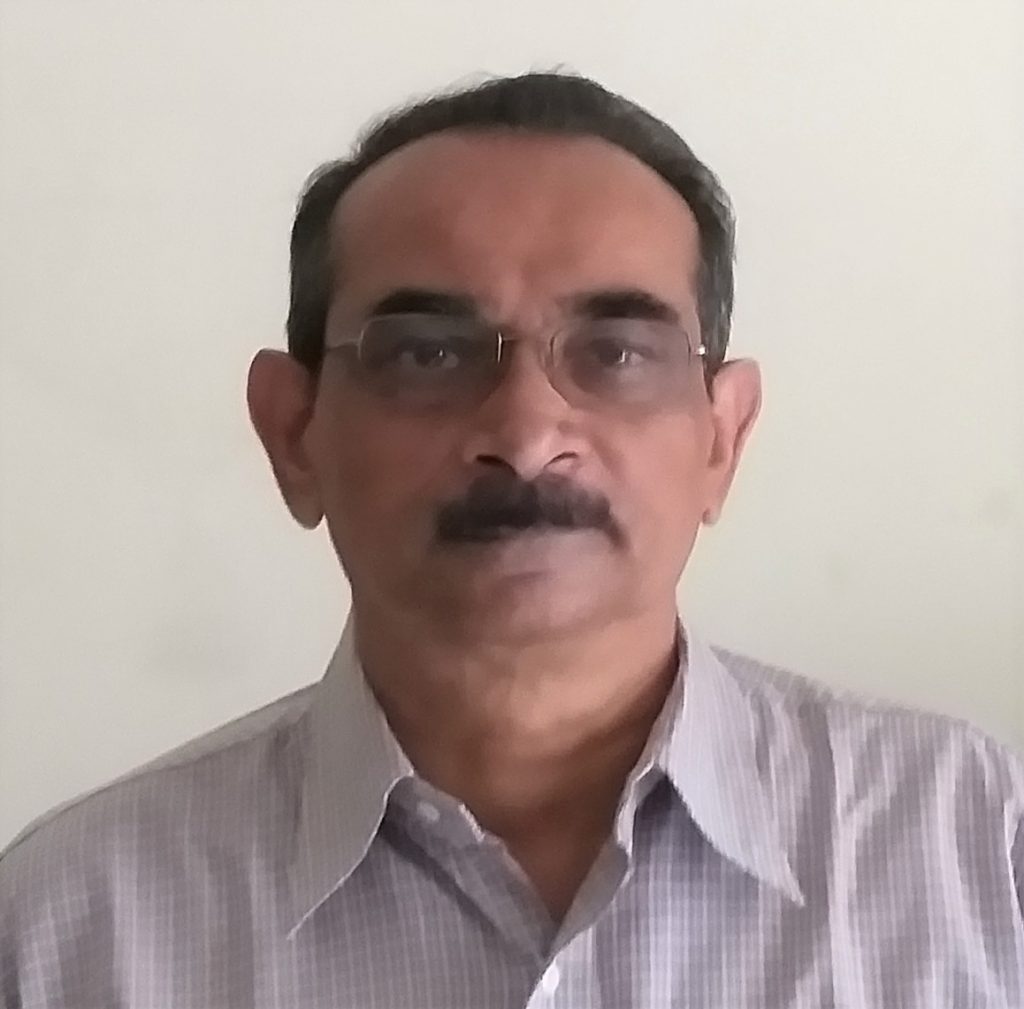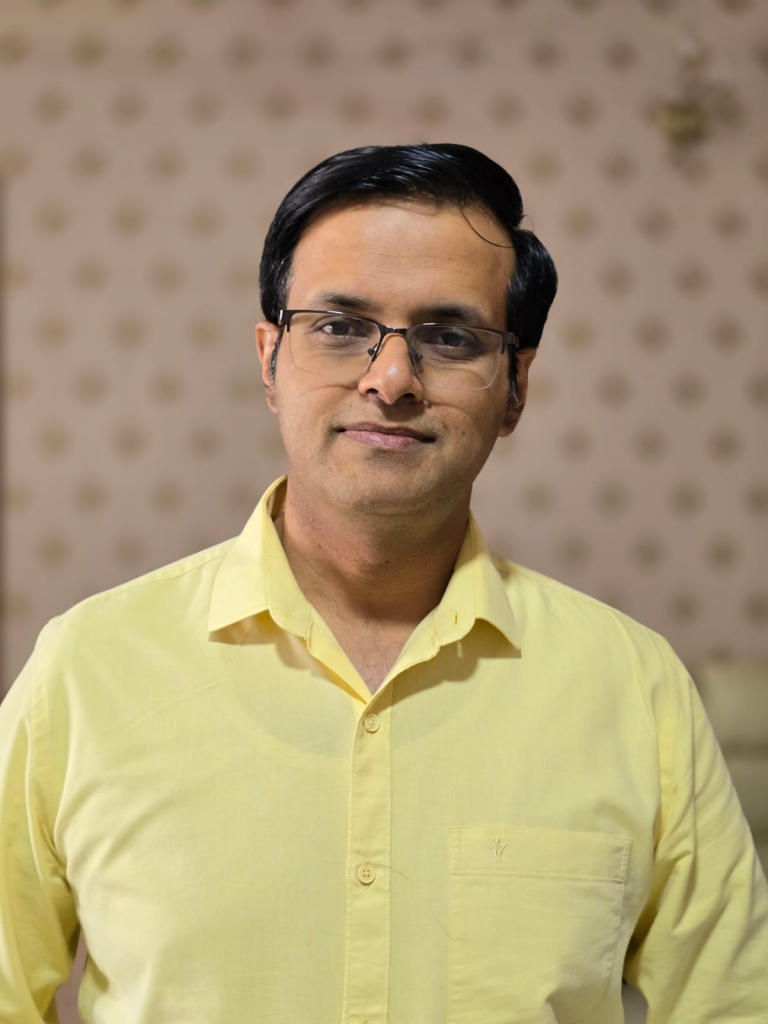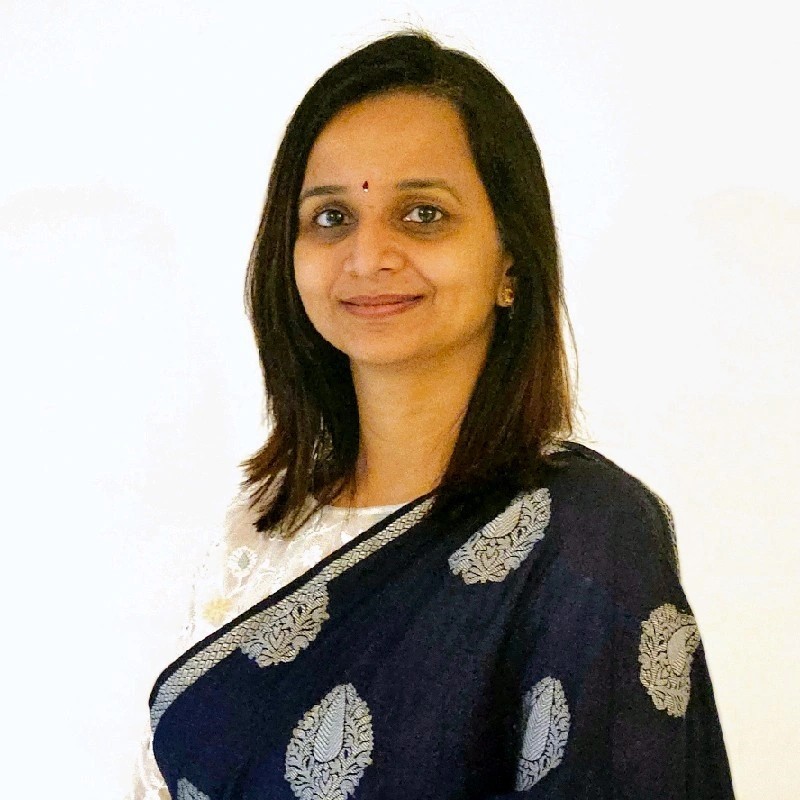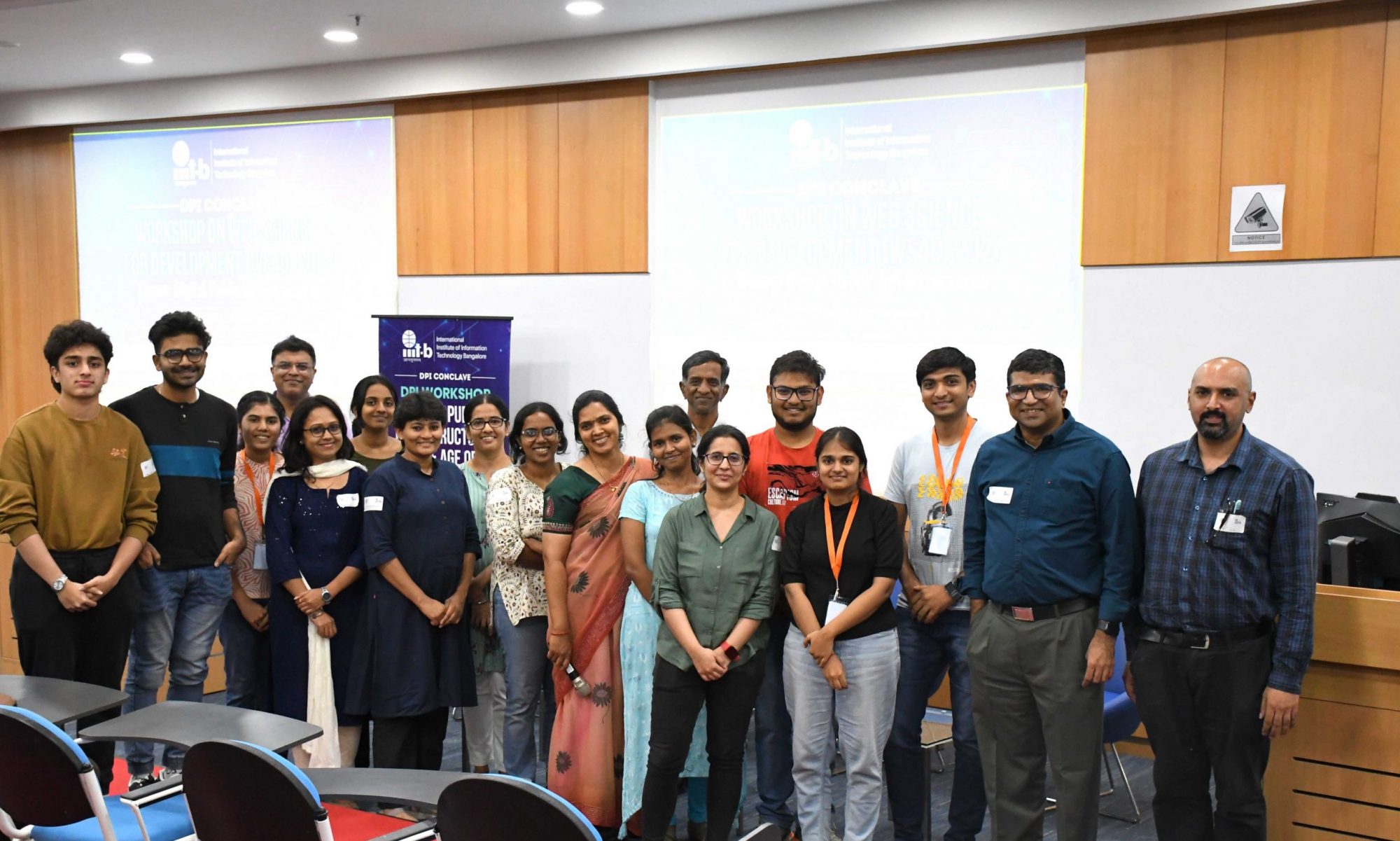Web Science Lab (WSL), IIIT-B biannually conducts a research workshop, where WSL research scholars share the latest developments in their work and the knowledge and insights from it. The event encourages interactive discussions on the ongoing research problems and includes brainstorming sessions. This time along with the full-day workshop, we would also have a Fireside chat with Experts on 16th December, 2024.
Schedule
| S.No. | Time | Speaker | Title | Session Chair |
|---|---|---|---|---|
| 1 | 10:00 – 10:20 | Dev Shinde | Rethinking Cross-Border Data Sharing for the Digital Age | Praseeda |
| 2 | 10:20 – 10:40 | Bhoomika A P | Comparing Visual Scene Understanding Approaches for Diverse Road Conditions | |
| 3 | 10:40 – 11:00 | Rishita Patel | Multi-modal content generation for Navigated Learning: Text-to-image using Stable Diffusion | |
| Break | 11:00 – 11:15 | BREAK | ||
| 5 | 11:15 – 11:30 | Sachin and Meghana | IUDX Project Showcase | Rishita Patel |
| 6 | 11:30 – 12:00 | Praseeda | Understanding and Representing Diverse Assimilation Patterns of Learning | |
| 7 | 12:00 – 12:30 | Asilata Karandikar | Building an Ontology for Categories of Consent Transactions on the Consent Matrix | |
| Lunch Break | 12:30 – 2:00 | LUNCH BREAK | ||
| 8 | 2:00 – 3:00 | Shridhar Mandyam |
FIRE SIDE CHAT
Topic: Navigating Careers in the Age of Artificial Intelligence
Compere: Prof. Srinath
|
Dev Shinde |
| Break | 3:00 – 3:10 | TEA BREAK | ||
| 9 | 3:10 – 3:30 | Ashashree Sarma | Learning Intervention for Network Synchrony | Suhan Roy |
| 10 | 3:30 – 3:50 | Sharath Srivatsa | Rural Colloquial Knowledge Management | |
| 11 | 3:50 – 4:10 | Suhan Roy | Markov Chain Modeling to predict the next activity of the learner | |
| 12 | 4:10 – 4:30 | Prof. Srinath & Prof. Sushree | Closing Remarks | |
To Join the Meet Online
WSL Research Workshop: 16 December 2024
10:00 – 16:30 (IST)
Microsoft Teams meeting
Meeting ID: 933 284 533 971
Passcode: JW3EU6
Meeting link: https://teams.live.com/meet/933284533971?p=yGKx9L3ngQftdUySZ3
Fireside chat
Topic : Navigating Careers in the Age of Artificial Intelligence
Register for Fireside chat here
From its early days as a concept to today’s sophisticated applications, the field of Artificial Intelligence (AI) is transforming the landscape of multiple industries including healthcare, technology, finance, marketing, agriculture, and education. AI is not only introducing extraordinary automation capabilities and efficiency but also is influencing the skills required in the workforce. The evolving significance of AI has also resulted in professionals adapting to the changes due to the new technology. As AI continues to evolve and integrate into our day-to-day lives, it is essential to shed light on the advancements, develop relevant skills, and address the challenges and opportunities presented by AI in the modern workforce.
Join us for an insightful fireside chat on “Navigating Careers in the Age of AI”, where our distinguished experts will discuss how AI has progressed, and how this advancement has redefined and affected our learning and career paths. This event is for students, professionals, or anyone who is simply interested in the impact of AI.
We look forward to welcoming you to a noon of learning, and discussion, and preparing for lifelong learning.
Speakers
Sridhar Mandyam K

Sridhar is a Network Science researcher with experience of 30+ years as an IT/analytics professional in Research and Development in academics and industry. He is currently associated with Web Science Lab at IIIT-B as visiting faculty.
His current research is focused on models and approaches to study social learning and collective behavior in the world of social networks, and how businesses and other entities are seeking to reach and serve this vast virtual society. Research in these directions is aimed at developing an understanding of how network structure impacts opinion dynamics and the emergence of different types of group behaviors, and the possibilities for creation of solutions that yield economic or other benefits by engendering cooperative, collective choices. He has previously been with C-DAC, India’s national initiative in supercomputing, heading its systems software group. He has also been with IBM’s supercomputing division in the US, as part of the Technical Strategy and Architecture Group. He has also been an entrepreneur for over a decade, co-founding an R&D flavored analytics firm in the late ‘90s, which developed tools for identity data management.
Sridhar holds bachelors and masters degrees in Physics from IIT Kharagpur and IIT Madras respectively, an M.Tech in Physical Engineering from the Indian Institute of Science (IISc), Bangalore, and Ph.D degree the in the area of parallel computing from the Department of Electrical Engineering, IISc, Bangalore, India. He has also held several visiting positions at research establishments in India and overseas, including the, the Department of Electrical Engineering at Queens University, Belfast, Northern Ireland, UK, the Department of Computer Science, as an invited scholar at University of Texas at Austin under the Fulbright Program of the US, and at the Center for Information-Enhanced Medicine (CiEMED), Institute of Systems Science, NUS, Singapore.
Abhijith Neerkaje

Abhijith is a Data Science Leader with over 20 years of experience leading high performing teams across various sectors ranging from retail, semiconductor manufacturing and energy. He currently is head of data science and analytics at Falabella India Pvt Ltd (A Latin American retailer). In his role Abhijith builds products that leverage machine learning algorithms to enhance the capabilities and efficiency Falabella’s marketplace. Prior to Falabella, Abhijith worked as a techno functional manager at Target, Walmart Ecommerce and Sandisk. Abhijith received his bachelor’s degree in engineering from PESIT in Bangalore. He holds post graduate degrees from Indian Institute of Science Bangalore and Massachusetts Institute of Technology.
Ramya

Ramya is a product management professional with background in engineering. She holds a Master’s degree in Technology (MTech) from IIITB and has built an extensive career in the tech industry. Ramya is currently with Lowe’s, a home improvement retail company, focusing on modernizing pricing and installation systems. Before that, she held various roles, including Head of Product at a startup specializing in air quality and pollen data services, as well as engineering positions at companies like Apple and Qualcomm.
Outside of her professional life, she enjoys solving puzzles and playing board games. Looking ahead, Ramya aspires to create and develop her own game, combining her love for technology and gaming.

